-By Dan dos Santos
It is the year 2291, and Dr. Scott Van Foschessantos has unearthed a trove of paintings long buried in the frozen ruins of Old New York. Having already carefully excavated the site and transported the findings to his lab, the Doctor is using state of the art technology to restore these artifacts to their former glory. As if peeling away time itself, each painting has been examined, layer by layer, in order to deduce the exact materials each artist implemented. A small sampling of his finding are listed below.
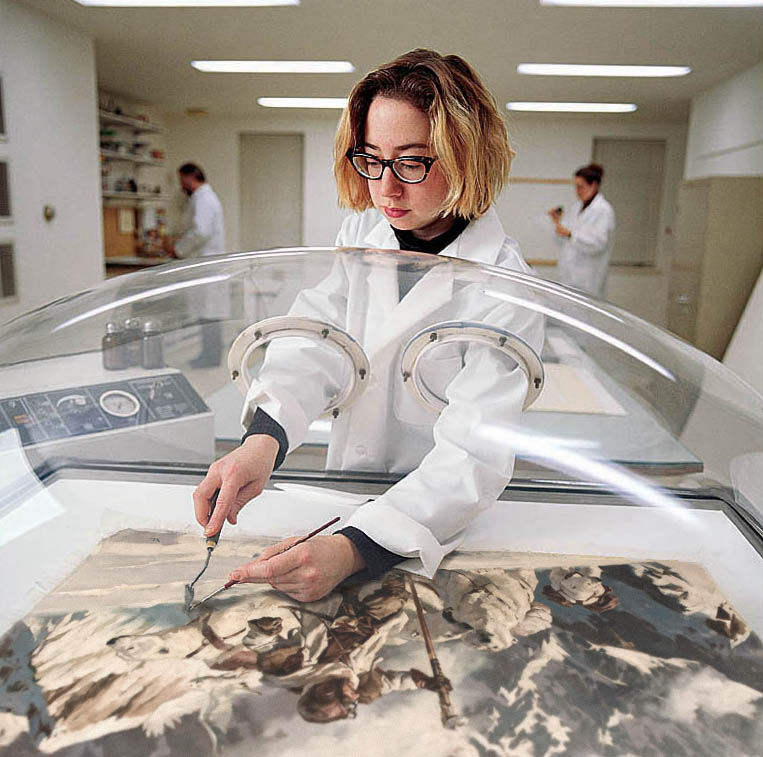 |
| A member of Van Foschessantos’ team inspects a painting on the vacuum table. |
Artifact A-01:
Signed upper left: “Gregory Manchess“
Upper most layer: Final picture varnish
Painting: Oil paint, consisting of varying formulas, mostly Old Holland, slight amounts of Galkyd and Alkyd White detected.
Underpainting: Acrylic wash, a mixture of Ultramarine Blue & Burnt Umber
Preliminary drawing: 2B Graphite, applied directly to surface
Primer: 2 layers of Acrylic gesso
Substrate: Belgian linen
Artifact A-02:
Upper most layer: W&N Conser-Var
Intermediate varnish: W&N Artist’s retouching varnish
Painting: Oil paint, consisting of varying formulas, mostly Rembrandt, slight amounts of linseed oil and cobalt drier detected.
Underpainting: Sepia Acryla-gouache.
Sealant: Krylon Workable Fixative
Preliminary drawing: 2B Graphite, applied directly to surface
Primer: 3 layers of Acrylic gesso
Substrate: Strathmore 500 series Illustration board
Upper most layer: Gouache
Underpainting: Thinned Sepia gouache.
Preliminary drawing: 2B Graphite, applied directly to surface
Primer: none
Substrate: Strathmore 500 series Bristol board
Upper most layer: Colored pencil and Gouache
Painting: Multiple layers, alternating between W&N watercolors, charcoal pencil, and Golden Glazing Medium (Satin finish)
Underpainting: Golden Fluid Acrylics
Preliminary drawing: 6B Graphite transfer, modified with 2H graphite drawing
Primer: none
Substrate: Fabriana 300 lbs hotpress watercolor paper
Artifact BC-08:
Upper most layer: W&N Damar Varnish
Intermediate varnish: W&N Aerosol Retouch Varnish
Painting: Oil paint, consisting of varying formulas, mostly W&N, no siccatives detected.
Underpainting: Acrylic wash, a mixture of Burnt Sienna and Burnt Umber
Preliminary drawing: HB Graphite, applied directly to surface
Primer: 3 layers of Acrylic gesso
Substrate: Strathmore 500 series Illustration board
Upper most layer: Golden Polymer Varnish with UVLS (Satin finish)
Painting: Liquitex Acrylic
Preliminary drawing: HB, 2B drawing
Primer: none
Substrate: Strathmore hot-press watercolor paper, 300lb
Upper most layer: Aerosol Varnish
Painting: Acrylic, varying formulas; traces of matte medium, gloss medium and nicotine detected.
Preliminary drawing: H, HB, 2B Graphite, applied directly to surface
Primer: none
Substrate: Arches hot-press watercolor paper, 300lb
Upper most layer: Liquin
Painting: Oil paint, slight amounts of Liquin Impasto Alkyd detected
Primer: 2 layers of Acrylic Gloss Medium
Preliminary drawing: mechanically integrated with substrate
Substrate: Epson Piezo Pro Matte Canvas, mounted to 3/16″ masonite
Upper most layer: Gamvar
Intermediate varnish: Galkyd
Painting: Oil paint, mostly Gamblin, slight amounts of galkyd/gamsol detected
Preliminary drawing: Graphite transfer applied directly to surface
Primer: Multiple coats of Acrylic Gesso
Substrate: Vellum, mounted to 3/8″ Birch Plywood
Upper most layer: Mixture consisting of 7 parts galkyd, 2 parts wax medium, 1 part Gamsol
Painting: Oil paint, trace amounts of galkyd detected
Underpainting: Oil paint and oil stick, raw umber
Preliminary drawing: Graphite drawing, applied directly to surface
Primer: 3 coats of Neutral PH PVA adhesive
Substrate: Stretched Linen
Artifact D-20:
Signed lower left: “Donato Giancola“
Upper most layer: Gam-Var
Intermediate varnish: Galkyd
Painting: Oil paint, slight amounts of Sun-thickened Linseed oil, Venice Turpentine and Damar Varnish detected
Underpainting: Acrylic wash
Primer: 3 layers of Acrylic Matte Medium
Preliminary drawing: mechanically integrated with substrate
Substrate: Strathmore 500 series cold-press paper, mounted to 1/4″ masonite




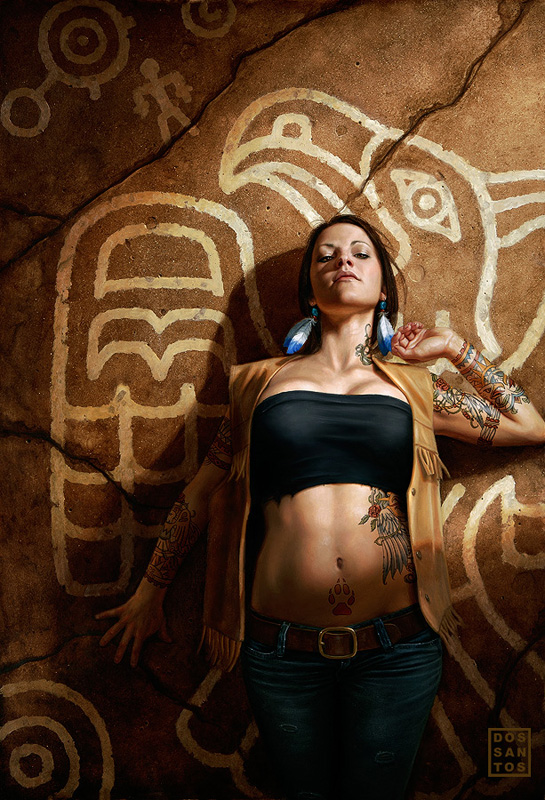
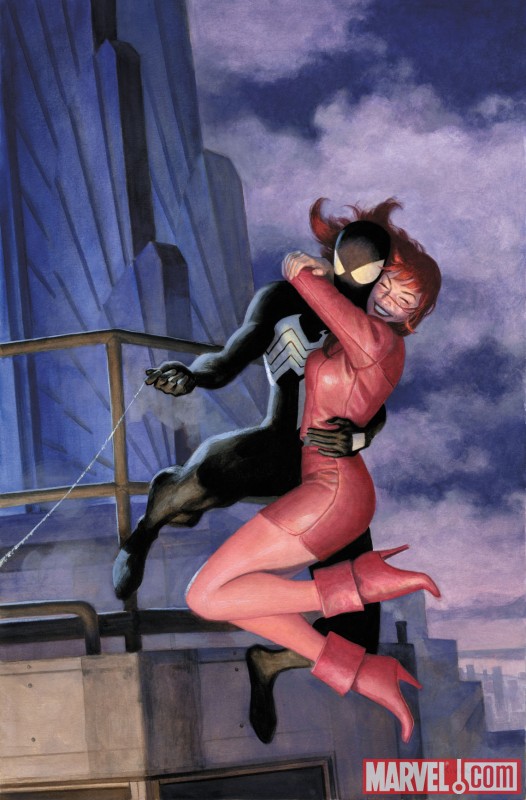
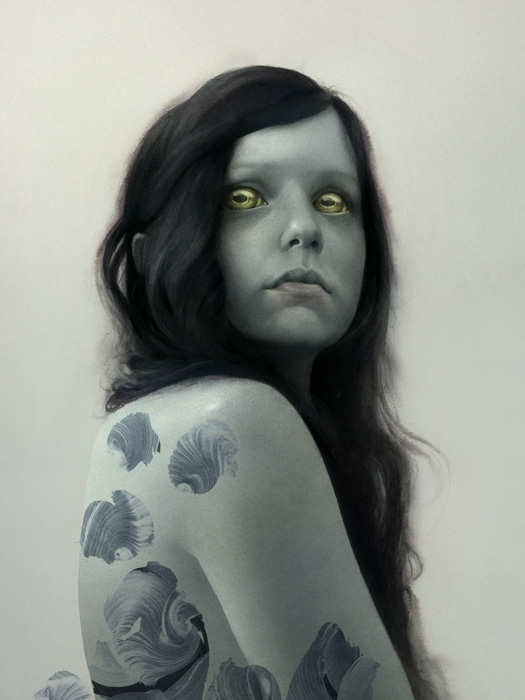
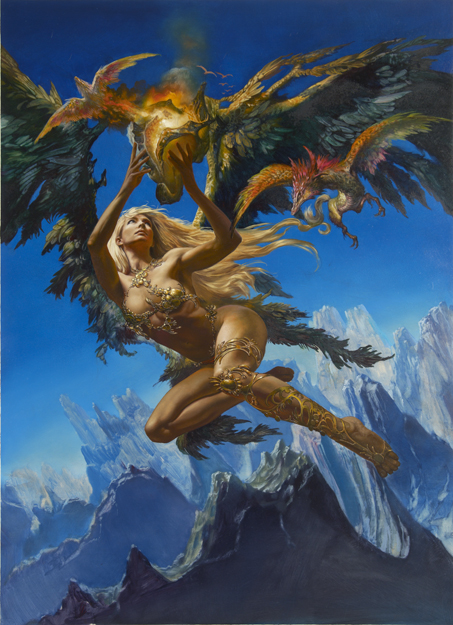
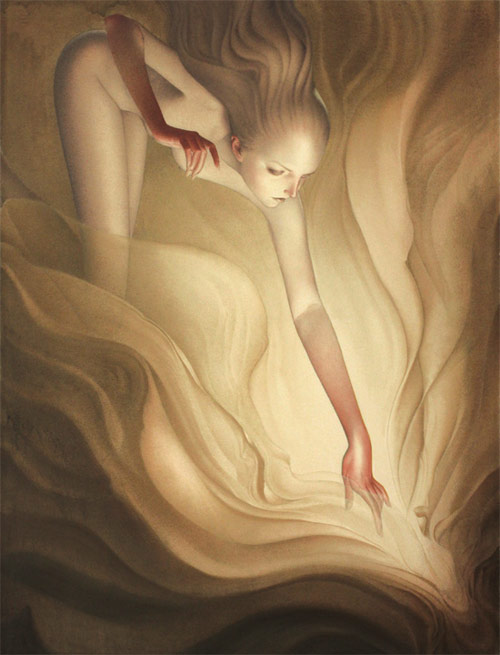
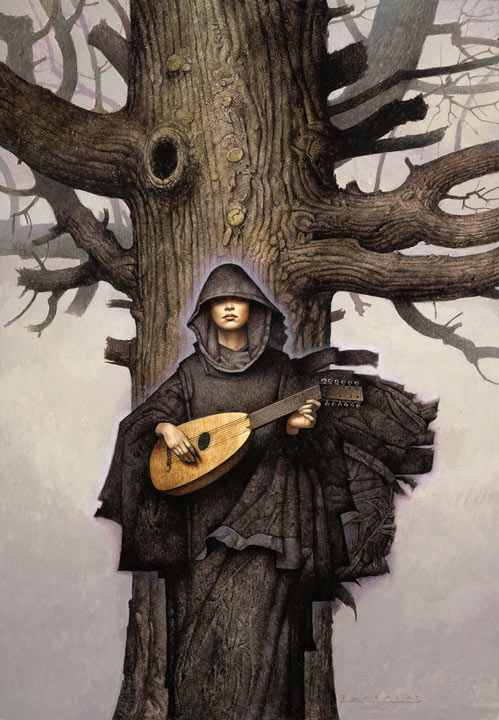

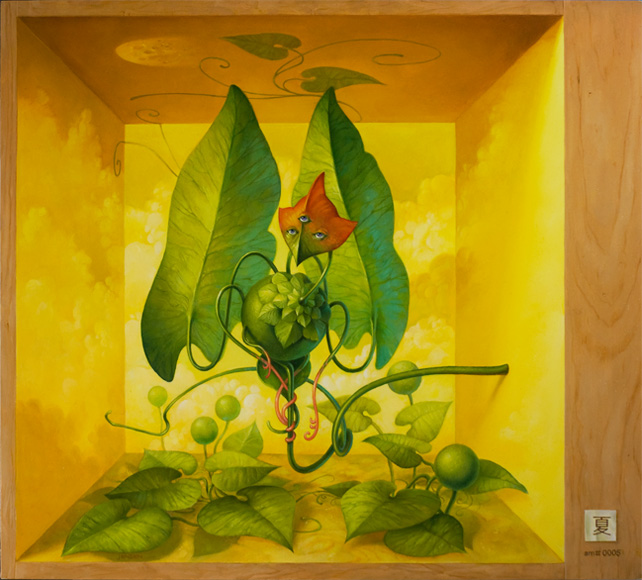
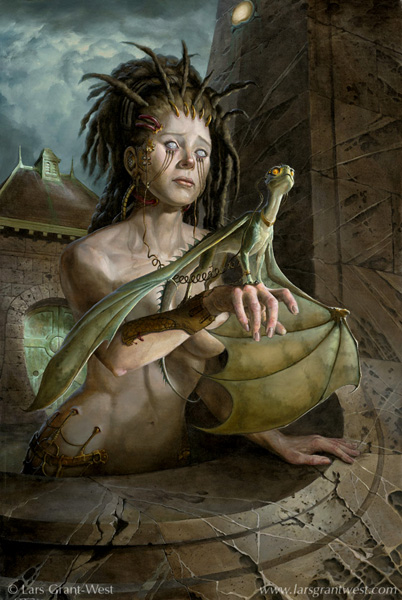
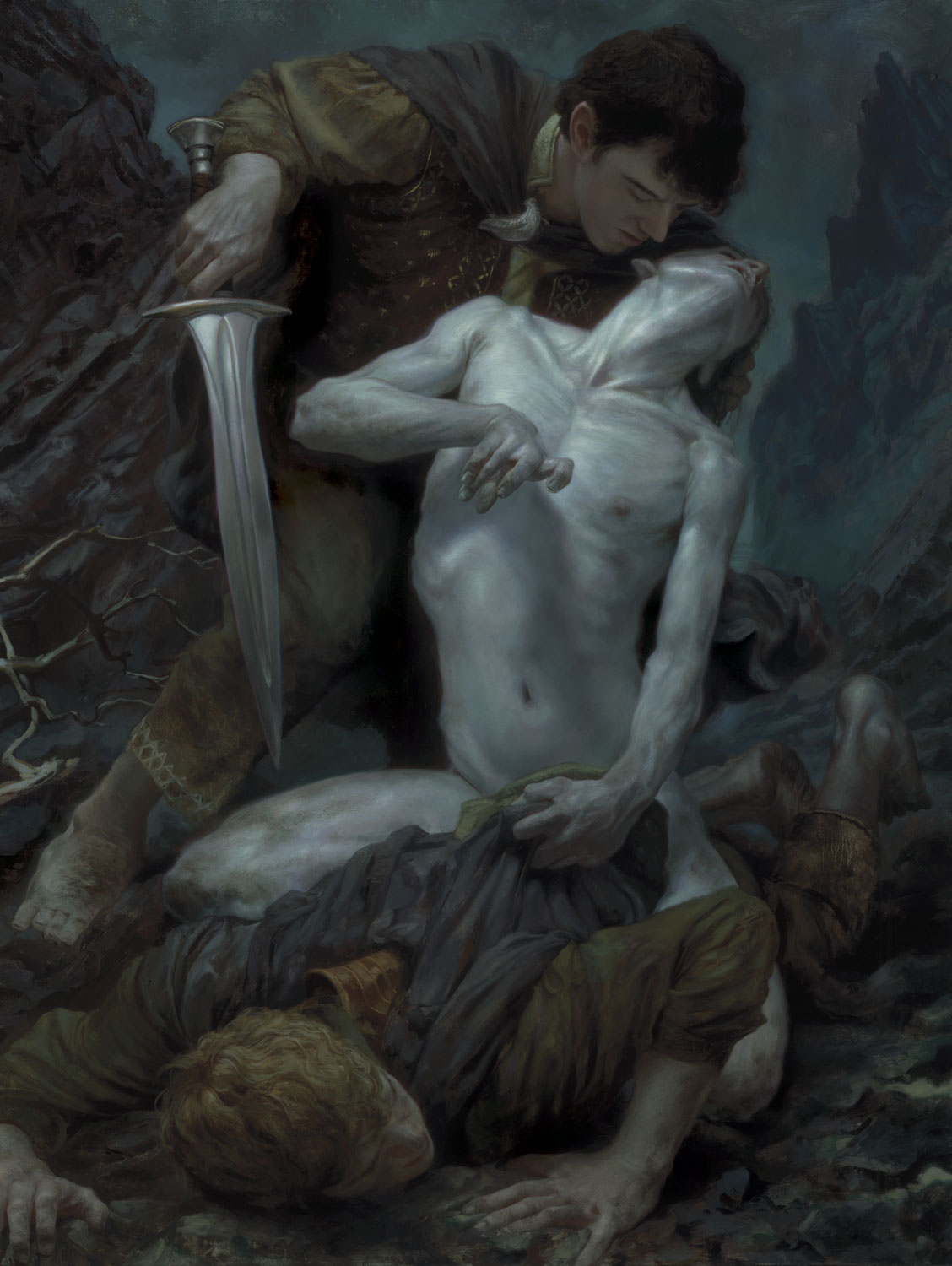
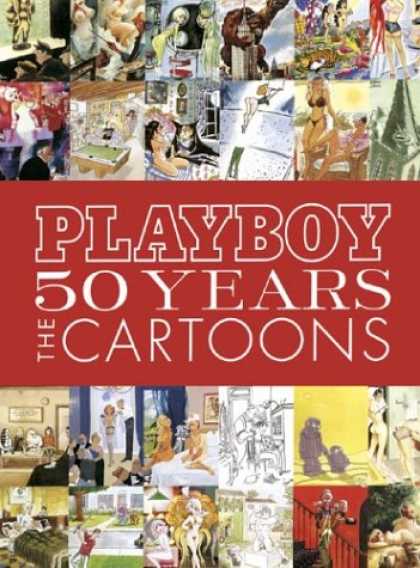
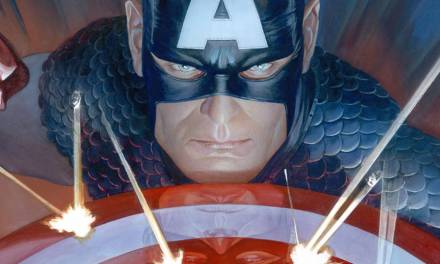

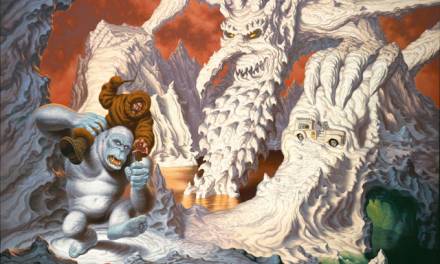
Really cool post; I'm a sucker for anything that gives insight to someone's process, and it's fun to see what brands folks prefer.
By the by, great name for the Doc who's conducting these studies.. took me a sec to figure out where I read that before;
http://i4.photobucket.com/albums/y141/igallo/Collab.gif
awesome post.
i find it kinda amusing to see no gloves or hand protection on the person inspecting the painting on a vacuum table.
fantastic post!
so much info, so much insightinto to questions like “how the hell does he do that?!?!”
thanks.
Great post!
I'm surprised though to read so many use graphite for the drawing. Thanks for posting!
Great great post ! thanks for sharing these cooking secrets.
What kind of varnish do you guys recommend on top of watercolors + colored pencils ?
I need a t-shirt that reads:
I like my preliminary drawings mechanically integrated with substrate
I love the format of this post, there's a lot of good info here. Any chance of Sam Weber writing something for the blog?
Great post, Dan. Anyone dissecting my current painting would say, “did this clown have any idea what he was doing?”
I'm with John D. on a Weber request.
While I'm at it, I'd toss in the following names for consideration (based solely on my personal and selfish preferences)…
Lars Grant-West
Omar Rayyan
Petar Mxyzptlk
Jon Foster
Paul Bonner
Chris Rahn
Great post!
Another Weber request here.
GREAT to understand the mechanical process, that can be of great help for us. The intelectual process of these artists are theirs – we just need to apply some of these “physical” processes into our experiments, and see what our own creative mechanisms will do with that.
Thanks a lot for the post Dan!!!
Fantastic Post! I love the format. Thanks for giving me a good laugh at the start of the day, Dan!
And thanks Scott Brundage for giving me a chuckle at 'Petar Mxyzptlk'. A fantastic artist who sounds like an equally nice guy…one that will probably get a chuckle at your post as well. For those wondering, I'm sure it's really Petar Meseldžija (a name that I also cannot spell…I have to cut and paste from dr. google).
m
Both Weber and Bonner posts are in the works.
Echoing the chorus. But what a cool way to present this info, and I'm very much looking forward to the Weber and Bonner pieces.
Keep up the great work.
I loved this. So much information about how you all work and such a fun presentation of it!
OMG~! thank you!
I love this site!
This really is the best blog I have ever found. Thank you so much for sharing this. 😀 <3
Dear God… Awesome
Does Dan Dos Santos really use Winton Titanium White? Why student grade? Just Curious.